ALCOHOL LICENSING
Pubs, Clubs, Bars, Restaurants
Large Scale Music Events
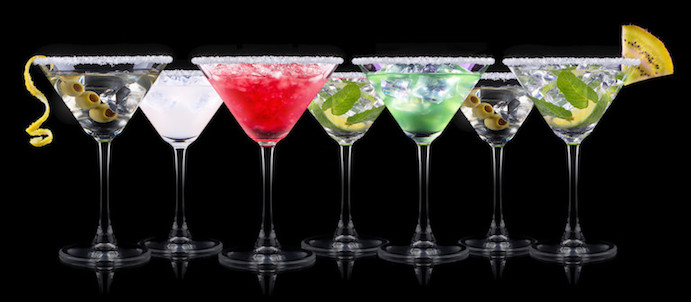
The most common issues arising in alcohol licensing are: cumulative impact - the premises will be in an area already saturated with licensed establishments; the terminal hour - licensed businesses want to trade late into the night, or the early hours of the morning, but nearby houses and flats may signal problems with neighbours; noise-nuisance - if there is live or amplified music, steps need to be taken to ensure adequate sound-proofing; and anti-social behaviour - the type of customer to be attracted may be relevant.
Bar/Restaurants
Ancillary Bars
Today, many restaurants like to serve drinks at the bar to a select number of customers who do not want to eat. This is achievable if the application is not over-ambitious as to the number of 'drinking-only' customers. Consultation with local residents and the police is essential, to disabuse anyone of the suspicion that the application is for a bar in disguise
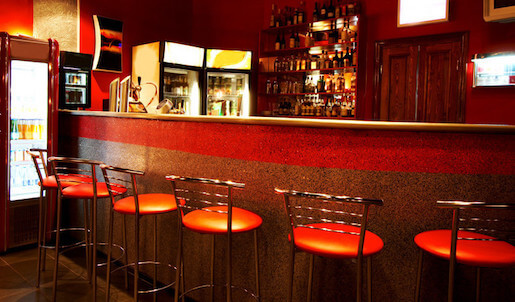
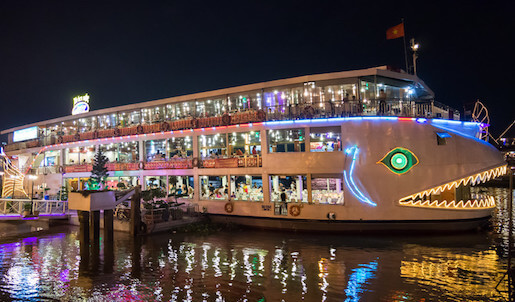
Restaurants
Premises
Restaurants can be on trains, in tents at county fairs, or they may be wholly outside - on pavements and at street-parties. Since the definition of "premises" in the Licensing Act is very wide, if alcohol is to be sold with a meal at any of the above variants of "restaurant", then a premises licence will almost certainly be necessary.
See also: airports
A common mistake made in alcohol licensing is for applicants for bars to describe their operating model as a 'restaurant' - hoping to disguise its impact on the locality. Licensing committees are quick to see through this.
Alcohol Licensing & THE OPERATING SCHEDULE
The 'operating schedule' section of the application form needs to set out how the operation will promote the licensing objectives. An application can be won or lost on the strength/weakness of the operating schedule. There is a tendency in current alcohol licensing to resort to licensing cliché, and a 'cut and paste' completion of the operating schedule from over-used templates. For example, in order to appease fears as to possible ASB from departing customers, applicants have taken to claiming that their bar will be "high-class", and will only attract "mature, sophisticated customers". At best, licensing committees take these assertions with a large pinch of salt. At worst they seriously damage the credibility of the applicant.

NIGHT CLUBS
Late closing times are at the heart of many contested applications for night clubs. Noisy customers leaving in the early hours, street-fouling and other anti-social behaviour, all engage 'prevention of public nuisance'. The operating schedule should identify the steps proposed to mitigate those risks.
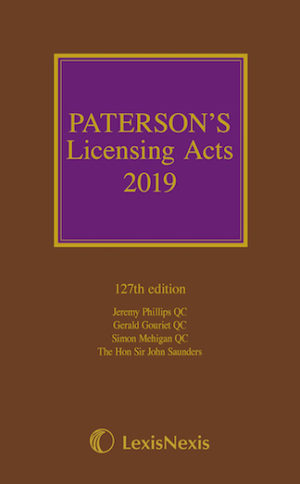
PATERSON'S LICENSING ACTS
Gerald Gouriet is General Editor

LARGE SCALE EVENTS
For large-scale outdoor events, the operating schedule is likely to be more extensive than for a nightclub and may wellcomprise several volumes. Security, the admission of young persons, public transport and vehicle access are major considerations. Highways Authority and police will play an important role.
CUMULATIVE IMPACT POLICIES
A House of Commons Briefing Paper (May 2017) says:
Cumulative impact policies (CIPs) are not referred to in the 2003 Act. However they are discussed in Home Office Guidance (March 2015) on the Act where “cumulative impact” means “the potential impact on the promotion of the licensing objectives of a significant number of licensed premises concentrated in one area.”
Section 141 of the Policing and Crime Act 2017 (not yet in force) will amend the Licensing Act 2003 and put CIPs on a statutory footing while introducing a requirement on licensing authorities to review the evidence on which CIPs are based at least every three years.
Further reading: See Cumulative Impact Policies: More honoured in the breach?
See also: House of Commons Briefing Paper
Further reading: Sale of alcohol - "Light Touch Bureaucracy"?
See also: Sale of Alcohol Minimum Unit Pricing
DRUGS MISUSE is a particular problem in the night time economy, with some evidence of dealers being admitted by door staff. The 'prevention of crime' licensing objective is fully engaged. The recent closure of 'Fabric' nightclub shows how seriously this issue is taken. The operating schedule of a nightclub should set out robust policies for search, seizure and safe storage prior to collection by police.
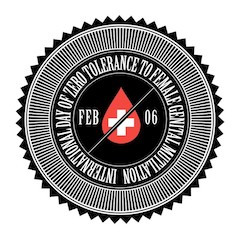
If you have a question relating to Alcohol Licensing or Entertainment Licensing please telephone 020 7353 8415
0r use the Contact Form